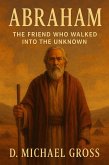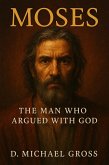Beginning with the call that rewrote his life, Jeremiah: The Prophet Who Couldn't Stop Weeping follows the priest's son from Anathoth into the public square, through the heat of Josiah's reforms, the cold contempt of the crowds, and the long ache of being right too soon. We watch him gain a voice and lose his place. We watch his friendships thin, his family step aside, and his city decide that convenience is the only kind of truth worth hearing. We watch him refuse to play along.
This is a book about cost. It explores the price exacted by an uncomfortable vocation: the social exile, the sleepless nights, the prayers that sound like accusations. It gives Baruch, Hilkiah, and the unnamed mothers and merchants around Jeremiah real weight, while keeping Scripture central and history honest. The timeline is faithful, the details are grounded, and the lens is deliberately human. The aim is simple: to let readers feel what it was like to stand where he stood and still say what needed saying.
What you will find here: • A psychologically vivid, historically respectful retelling of Jeremiah's life and work. • The inner weather of a prophet: dread, resolve, fatigue, jealousy, mercy, and a stubborn kind of hope. • The public theater of false comfort, political spin, and religious performance that made truth sound like treason. • Scenes that move, not lectures that explain. The theology is carried by story, image, and consequence. • A voice that refuses cheap inspiration. When hope appears, it has scars.
What you will not find here: • Slogans, easy answers, or a sanitized hero. • Academic jargon or devotional clichés. • A tidy arc that lets the city off the hook.
Who should read this: • Readers who value literary narrative, historical texture, and spiritual honesty. • Pastors, teachers, and students who want Jeremiah without the fog. • Believers and skeptics who respect truth-telling even when it hurts. • Anyone who has paid a price for saying what is true and is tired of being told to smile about it.
Tone and approach: The prose is direct, lean, and humane. The story privileges lived detail over abstraction. When the book makes a claim, it earns it with scene, not slogans. The aim is not to lecture about courage but to put the reader at the city gate with a young man whose voice will not let him go.
If you come to this book for comfort, you will still get it, but it will be the kind that arrives after the sirens stop. If you come for honesty, you will get that first.
Dieser Download kann aus rechtlichen Gründen nur mit Rechnungsadresse in A, B, CY, CZ, D, DK, EW, E, FIN, F, GR, H, IRL, I, LT, L, LR, M, NL, PL, P, R, S, SLO, SK ausgeliefert werden.









